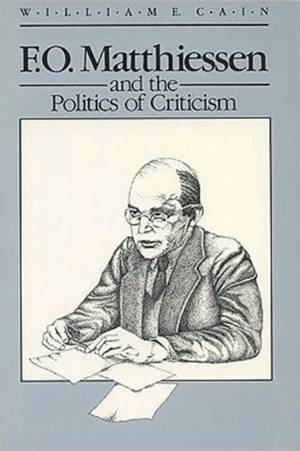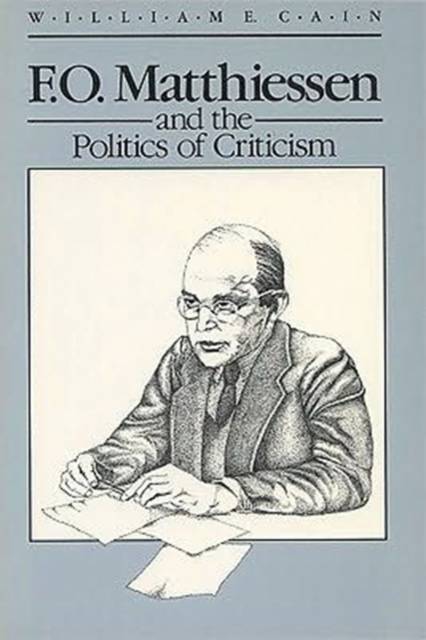
- Retrait gratuit dans votre magasin Club
- 7.000.000 titres dans notre catalogue
- Payer en toute sécurité
- Toujours un magasin près de chez vous
- Retrait gratuit dans votre magasin Club
- 7.000.0000 titres dans notre catalogue
- Payer en toute sécurité
- Toujours un magasin près de chez vous
Description
F.O. Matthiessen remains one of America's leading twentieth-century critics in part because the problems he and his contemporaries struggled with remain ours today. William E. Cain studies Matthiessen's career with careful attention to biographical, institutional, literary, and political contexts. He considers Matthiessen's many reviews and essays on literature and deals sympathetically, but critically, with Matthiessen's attitudes toward the Cold War as revealed in his memoir, From the Heart of Europe.
Cain draws connections between Matthiessen's criticism and the influence of significant political movements like the Popular Front of the 1930s, the Progressive Party, and Henry Wallace's campaign for the presidency in 1948. Analyzing specific texts by Thoreau, James, Dreiser, and Melville, he confronts the difficult and highly contested relationships between literary criticism and politics, scholarship and the public sphere, pedagogy and social activism. He suggests that critics need to acknowledge the primacy of their political commitments and should proceed to teach and write accordingly. This argument, certain to prove a controversial one, will spark extensive debate and discussion about the theory and practice of intellectual work.
All students and scholars of English and American literature, American studies, black studies, and American history will welcome this original and stimulating study, the first to treat Matthiessen in fully detailed social, historical, and political contexts.
Spécifications
Parties prenantes
- Auteur(s) :
- Editeur:
Contenu
- Nombre de pages :
- 288
- Langue:
- Anglais
- Collection :
Caractéristiques
- EAN:
- 9780299119140
- Date de parution :
- 15-07-96
- Format:
- Livre broché
- Format numérique:
- Trade paperback (VS)
- Dimensions :
- 138 mm x 215 mm
- Poids :
- 308 g

Les avis
Nous publions uniquement les avis qui respectent les conditions requises. Consultez nos conditions pour les avis.






